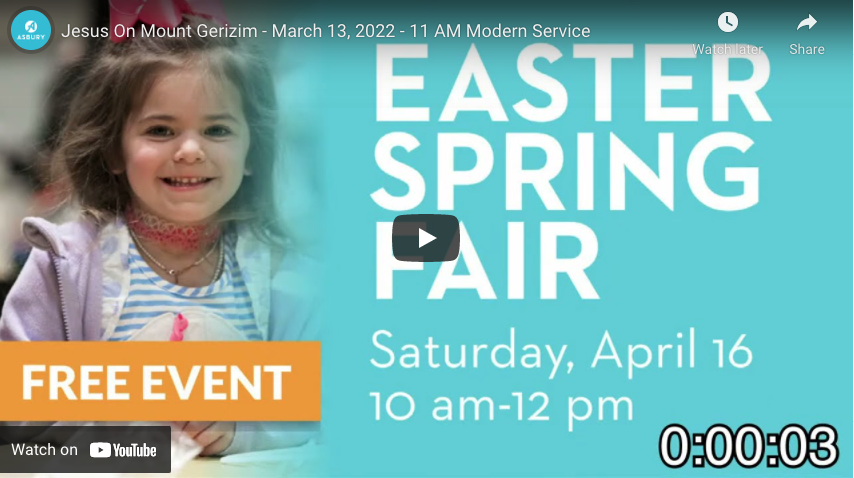Jesus On Mount Gerizim
Series: Mountains, Valleys and Caves

Jesus encountered a woman with a checkered past. Jesus was “kind” but not “nice” as He spoke plainly and directly with her. He was not mean, judgmental, and bombastic—He just spoke to her. That was remarkable. A Jewish man talking to a Samaritan woman? Not only that, but she was “that woman” in her community. Decent people wouldn’t be caught dead with her. She was despised, rejected, cast-off, unwanted, and shunned because of her past. As Isaiah 53 prophesied, Jesus had to deal with the same rejection not because of unrighteousness but because of His righteousness. John 3:16 is followed in the next few verses with the statement that people love darkness rather than light. Jesus engaged her in conversation. She used a diversion tactic in verse 20 when she went into the old “Jew vs. Samaritan” routine. After a civil war, an alternative site for worship was set up locally in Samaria. The Jews and the Samaritans had hostility toward each other. Jesus responded and redirected the conversation.
John Wesley, the founder of Methodism, had to redirect the conversation about reaching the lost. In his day, 1700s in England, the poor were marginalized and disregarded. They were considered disposable, too. When George Whitefield invited Wesley to preach outdoors to the coal miners early in the morning, Wesley thought the Lord would be offended. However, when he tried it, he realized that audience was more receptive than most who attended church. Early Methodists were overwhelmingly poor. Wesley cared for them, like Jesus cared for this woman.
Jesus’ conversation on Mount Gerizim in Samaria is the model of invitation. He broke down cultural barriers and invited someone considered to be trash in the community to talk to Him. He listened. He had compassion. He wanted everyone to belong. He invited anyone and everyone to the party in the kingdom of God. She, in turn, became an evangelist.
Sermon Notes
You can add your own personal sermon notes along the way. When you're finished, you'll be able to email or download your notes.
